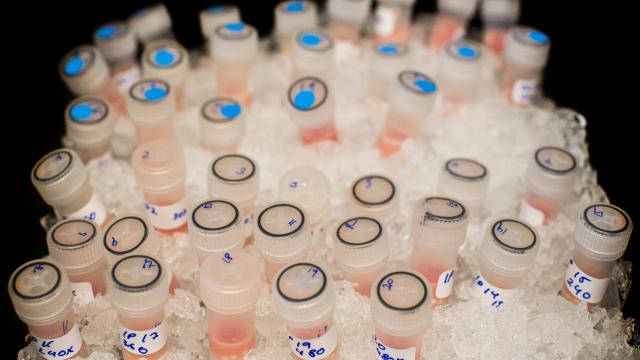Scientists dosed the first patient this week in a small clinical trial of an experimental cancer treatment — one that relies on a novel kind of ally. The treatment uses a virus engineered to selectively kill cancer cells, while also amplifying the body’s immune response to the cancer. The hope is that this therapy can help those with advanced solid tumour cancers, in combination with other existing drugs.
The CF33-hNIS virus, also called Vaxinia, was originally created by researchers at the City of Hope National Medical Centre in California. It’s now being jointly developed with the company Imugene Limited.
Vaxinia is billed as an oncolytic virus, meaning it prefers to target and infect tumour cells. Scientists have been hopeful about using these kinds of viruses to directly kill off cancer cells for more than a century, but with limited success so far. In recent years, some teams have decided to explore a slightly different plan of attack. This genetically modified virus not only infects and harms cancer cells, but also forces these cells to become more recognisable to the immune system.
This strategy, the researchers hope, will then allow other treatments that also boost our immune response to cancer cells to be more effective, particularly against hard-to-target solid tumours. These treatments are collectively known as immunotherapy. In early animal and lab experiments, the virus has been shown to reduce the size of colon, lung, breast, ovarian, and pancreatic cancer tumours.
“Now is the time to further enhance the power of immunotherapy, and we believe CF33-hNIS has the potential to improve outcomes for our patients in their battle with cancer,” said lead study investigator Daneng Li, an assistant professor of City of Hope’s Department of Medical Oncology & Therapeutics Research, in a statement.
Vaxinia will be tested out in a Phase I trial of 100 cancer patients with metastatic or advanced solid tumours who have tried out at least two other treatments. Groups will either receive Vaxinia alone or in combination with pembrolizumab, an immunotherapy drug.
Phase I trials are explicitly meant to test the safety and optimal dose of an experimental treatment, not to definitively prove that a treatment works. But the researchers will be keeping track of whether patients are appearing to respond to Vaxinia, whether their cancers are progressing, and their survival rate over the next several years — data that will make or break any plans for further clinical research. The trial is expected to be completed by early 2025.
Related: Doctors Used Bacteria-Killing Viruses to Take Down an Incurable Superbug
Editor’s Note: Release dates within this article are based in the U.S., but will be updated with local Australian dates as soon as we know more.
